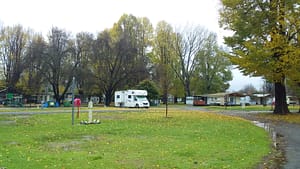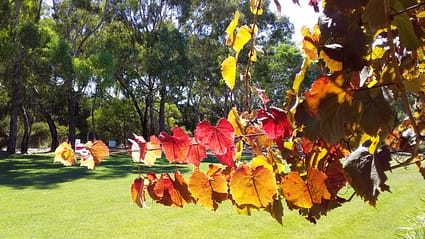Summer is absolutely my favourite season.
I adore hot weather.
Such a relief from the chilly winter, though here in Melbourne the winters are hardly bitter. But there’s nowhere as horrid as a Melbourne tram stop when the freezing southerly wind is blowing and I’ve spent decades waiting at cold Melbourne tram stops in winter!
A warm breeze in spring bodes of the hot weather to come. It brings hope, a sense of better things to come. Summer as a child means freedom, no school, no homework, no bloody PE. For me it spelled travel, packing up the caravan and heading for the beach, or sometimes inland to the mountains. It meant books and lots of reading time, games, beach, family, exploring new places and spending time as one wished.
I remember as a child the rhythm of summer that went a bit like this: four or five days of hot weather and then a build-up of puffy clouds, growing denser as the afternoon wore on and finally erupting in what many people (but not me) longed for: the cool change. The temperature dropped twenty degrees in half an hour. The rain came down in buckets and on the roads steam rose with that gorgeous smell of newly-wet tarmac which I will forever associate with summer.
The other thing I love about summer was daylight savings time.
Long balmy evenings, the cricket on the radio and sometimes the TV, hanging around the caravan playground after dinner, or playing cards around the little table in the van. The bite of the sun is tempered by the soft lingering dusk. Nowadays I enjoy the long summer evenings with the back door wide open, listening to the birds settle in for the night. Or with friends, glass of cold wine in hand, on a picnic in the park or a lovely private garden. And finally, the night closes in, heading for bed, relaxed and pleasantly weary.
But I’ve been feeling tired recently.
I don’t know why.
I wake up and I’m not refreshed, although I sleep generally soundly through the night. My eyes are slightly sore and watery and the bags under them puffier than usual.
I switch off my bedside light between 10pm and 10.30, which might seem early to some of you night owls, but I try (more or less) go to bed with the sun and wake with the sun. I wake about 6.30 to 7am and get up straight away. In summer there’s light behind the curtains and it’s time to get the day underway.

Autumn in Myrtleford, Victoria
During the summer it’s easier to sleep with the sun because the sun doesn’t set till later, but the times of dawn and dusk are changing now that we’re heading into autumn and I think that may be the reason for my tiredness.
Over the past few days, I’ve woken mid-dream. It’s still dark outside and I feel like I’ve been roused grumpily from a heavy sleep. I guess I normally have the right amount of REM sleep, but I rarely remember dreams, nor do I usually wake in the middle of them.
As I understand it, your body should naturally wake you during the first phase of sleep, a very light phase without dreams. Waking in Stage 1 of the sleep cycle is easy because you’ve barely dropped off.
It seems that at the moment I’m not waking during Stage 1, but rather during Stage 5, REM sleep or even Stage 4, which is deep, slow-wave sleep. Apparently waking during these stages is what makes you feel sluggish and heavy.
The thing is, I wake at about the same time, 6.45 or 7am and I feel awful. I’m wondering if waking during REM sleep is what is making me feel so groggy in the morning and more tired during the day.
I’m also wondering if this is related to the fact that it’s still dark at 6.45am.
I think I might have had enough of daylight saving now.
I’m thinking that waking in the dark is what’s making me feel sluggish.
Part of my body clock is saying, ‘All right then, you’ve had your 8 hours sleep, time to wake up!’ and so I do. But some other part of my body clock is saying ‘What?! It’s still dark. Go back to sleep’.
Perhaps my body has had enough rest and is ready to be up and about and my brain is attuned to the sun and isn’t going anywhere until the sun is up too.
I’m not really sure but I can tell you this…getting up in the dark is hard.
In ancient times, people slept when the sun went down and woke up at dawn. Life was so different when we were all hunter-gatherers, and later when we settled down and became farmers. While there might have been time to relax in the evenings, around the camp fire, or the kitchen fire, chatting, telling stories, singing songs and all those old-time fun things, people mostly went to be early and rose to work the next day when there was enough light to see.
The advent of electricity kind of mucked things up for us.
Shift-workers can find their body clock goes severely out of whack from working during the night and trying to sleep during the day. Even starting in the wee hours of the morning can be very difficult.
Special lights that simulate the dawn have been designed to gradually brighten the room to something approaching daylight, encouraging bodies of shift workers to believe that the sun has actually arisen. It’s much easier to assimilate to gradually diffusing light than to be rudely awoken by a sharp alarm clock and a blindingly bright bedside light.
In a week or so we’ll change the clocks at the end of daylight saving. I think I’m quite looking forward to it, even though it means the end of summer too. But that’s OK, winter brings its own set of things to get excited about.
Light Makes Us Happier!
I’ve not seen any holiday brochures for dark, gloomy, wet and cold places. OK, maybe you want to experience the aurora borealis or polar bears in the arctic; maybe you need to be there over winter…but generally speaking, we are attracted to sunshine, beaches, palm trees waving in the breeze, green and luscious mountains and so forth for our hard-earned holidays.
Why? Because, as I mentioned in the beginning of this post, sunshine makes us feel good.
Moods all over the world are known to rise in summer and drop in winter. There’s even a name for wintry depression: Seasonal Affective Disorder. Actually, I think it’s quite normal to want to stay inside, hunker down and wait for warmer days.
Going outside, into the natural light, is mood-boosting wherever you live. Even on overcast days, natural light is much brighter than inside lights. I find a great way to start my day is to take my morning coffee outside and sit in the warm sunshine for 10 or 15 minutes. I’ll still do this in winter, though the air may be chillier. With a warm jumper and a scarf you can still get your morning dose of sunlight.

Piggs Point Free Camp
Getting a few rays within an hour of waking also resets the internal body clock via tiny receptors in the eyes. Take your early morning tea or coffee outside with you; don’t wear sunglasses but don’t look directly at the sun either. Listen to the sounds of the world waking up around you and the aromas that waft in from other people’s breakfasts; the temperature of the air and your hands around the warm cup.
The end of daylight savings means getting the sleep cycle back in order.
I’m always a bit wistful about the end of summer. No more hot, easy-to-dress-for days, no more chilled glasses of wine under the awning, no more strolling about the campground after dinner, no more picnics in the park.
But I need to get my body clock back in order. I need to feel that it’s time to get up when I naturally awaken. Time to look forward to all the goodies that autumn and winter have to offer! Crunching leaves beneath your feet and comforting soups and crackling fires. Wrapping yourself in a favourite coat and scarf…That thin afternoon light that’s so evocative. Frost. A gentle rain. Casseroles. Snuggling. Books….
Until it’s time to change the clocks back to daylight savings and the cycle starts again.

Autumn McLaren Vale